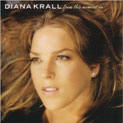Over 30 million people have now been duped into watching the video of the frumpy middle-aged woman who can sing. Everyone is astonished. Who would have thought a frumpy middle-aged woman could sing?!
Who would have thought anyone would be surprised that a frumpy middle-aged woman can sing?
Either the average person is far more dull-witted than ever previously imagined, or we are all fooling ourselves. You’re at a talent show. You watch various attractive young people march across the stage, with varying levels of talent. Then you see a frumpy middle-aged woman. You think– obviously she has no talent. Right.
In fact, any reasonably astute person would have likely thought, she’s certainly not here for her looks. Obviously, she must be able to sing.
Now, this is a program which introduces emerging talents and then processes them like hamburgers through the obscene rituals of fashion makeovers, stylists, image consultants, deportment experts, etc., with the goal of rendering them into mental frumps– celebrities. Why the real frumpy woman? To convince the viewers that they are not like those shallow, crass people who only appreciate art if it is packaged in sexy, youthful flesh. No no no– I don’t judge people by their appearance– only by their abilities.
And after Susan Boyle has had her meaningless moment on the stage, these same people will go back to choosing the singer with the biggest bosom, and only watching movies that star sexy young Hollywood starlets. Except for Meryl Streep movies– because she is the Susan Boyle of Hollywood films: the exception that proves we are decent, intelligent people after all. We like serious actors. My enjoyment of their films is a badge of culture and good taste. I’m glad you know that. Besides, Meryl Streep may be flat-chested but she is sort of pretty. She’s prettier than Mrs. Doubtfire.
Now, it has occurred to me that my enjoyment of obscure films by Japanese directors like Ozu might be taken for the same thing. I’ve had that reaction before: you can’t seriously like “Late Spring”– it’s excruciatingly slow moving and, it’s black and white. Or, more likely, “I watched that film you were so hot about– I couldn’t believe how boring it was!”
It’s probably true. Though I must admit, it’s not that much fun at work to casually mention, at lunch, that I watched an obscure Japanese film last night.
You just do that to make us think you’re smarter than we are.
Yeah, that’s what you get.
What I liked about my college experience is that it was one of the few times in my life when most of the people I hung out with respected elite artistry, drama, and music.
Nowadays, the elite is there to be mocked, even by the elite.
The Inevitable “Make-Over”
The latest: Susan Boyle has undergone a modest “make-over”, using a local hair stylist instead of a fancy one from the big city. The idea is to make it more digestible for the average viewer to maintain the illusion that they appreciate her for her voice and don’t care at all about the fact that she looks like a real person.
The Un-Boyle
Diana Krall seems like a perfectly fine lady. She looks very nice. She gets a lot of airplay on the CBC.

She is the opposite of Susan Boyle. Diana Krall looks absolutely ravishing– if your taste runs to big-boned blonde Visigoths– but, truthfully, is a rather average singer.
Norah Jones is in the same category: really, a mediocre singer with a pleasant voice, and, most importantly, a pretty body.
Just think– if you could combine Susan Boyle’s voice with Diana Krall’s looks, you would have the perfect entertainer. Right? Wrong. Nobody really cares about the voice part. Diana Krall has the only advantage that matters already in hand.
And actually, Susan Boyle’s singing talents really are quite over-rated as well.
